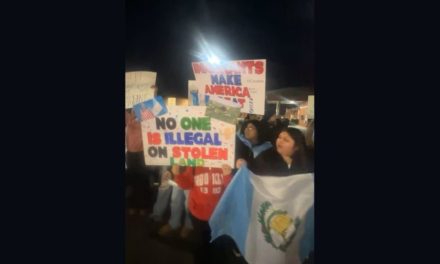
By Lenore T. Adkin
Special to the AFRO
The wide availability of COVID-19 vaccines in the U.S. convinced the two founders of the traveling African Diaspora Film Festival to offer limited, in-person screenings in their adopted hometown of New York City to better connect with audiences, alongside mostly virtual events to reach people everywhere. This marks a turn from last year when the festival appeared online only.
The 29th annual film festival runs Nov. 26 through Dec. 12 and boasts a diverse lineup of 78 films from 37 countries (38 movies are world premieres). Countries represented include Australia, Barbados, Brazil, Haiti, New Zealand, Niger, the Netherlands, Senegal, Samoa, South Africa, the United States and Zimbabwe.
Diarah N’daw-Spech of France and her Cuban husband, Reinaldo Spech, founded the film festival to counter stereotypes about Black people by showcasing their richness, diversity and human experience on the silver screen. You can expect documentaries, comedies, dramas, movies based on true stories and more from independent filmmakers and famous film festivals.
The festival comes as the world experiences a swift backlash from last year’s racial justice protests that stemmed from the murder of George Floyd. N’daw-Spech said change is usually slow to come and that the resistance to progress didn’t alter the way the festival operates.
“Our festival has always selected films that are socially conscious and that want to give a voice to the people who are typically voiceless or oppressed, N’daw-Spech said. “So, we haven’t changed anything in terms of the way we program and in term and the films we select.”
Here are five of N’daw-Spech’s selections in alphabetical order:
Back of the Moon (2019)
This love story is set in apartheid-era South Africa in 1958, and follows residents the day before police, working for the then-nationalist government, expelled Black families from Sophiatown, a famous Johannesburg suburb that was a hub for Black culture.
“It was just decided it was much too close to the city, there was too much political activity going on there and it was the first place to be targeted,” said Angus Gibson, the film’s Oscar-nominated director and a South Africa native. In the movie, viewers get to know a ruthless, but intellectual French poetry-reading gangster called Badman, who falls in love with Eve, a beautiful songbird, just before the horrific removal. “It is a strange mix of a gangster narrative and a love story, and I think the love story triumphs,” Gibson said.
A Bruddah’s Mind (2020)
A low-budget, coming-of-age film set in Fortaleza, a city of 3 million people in northeastern Brazil, this movie explores casual racism. It shows what happens to Saulo, a Black high school student who admires the teachings of the Black Panther Party and Rosa Parks, after he stands up to a classmate calling him a monkey. “In Brazil, this is kind of normal, so the film tries to show people that, that isn’t supposed to be normal,” Déo Cardoso, the film’s writer and director said of the racial slur. He notes that while the story is fictional, it is also autobiographical and inspired by true events — Cardoso says it is set during the recent rise of fascism in Brazil.
Fighting for Respect: African Americans in WWI (2021)
African-American soldiers fought for democracy abroad, only to have it denied to them when they came home. “Fighting for Respect” is a documentary about African-American soldiers serving in France during World War I and the racial terrorism that awaited them at home. In France, many of these soldiers earned medals of honor fighting with the French Army. Their service helped Allied Forces win the war, upended racist perceptions about Black soldiers there, contributed to French music and culture, spurred the Harlem Renaissance, and prompted many African-American entertainers, writers and entrepreneurs to relocate there, said Julia Browne, the film’s associate producer. “This was the moment when African American and French culture started to come together and that hasn’t left yet, that admiration of both sides.”
Josephine Baker: Black Diva in a White Man’s World (2006)
One of the African Americans who left the United States for France was the glamourous Josephine Baker, one of the most famous performers of the 20th century. In examining the global icon’s political and racial importance, the documentary follows her life from its beginnings in St. Louis and goes into the splash she had in France as an entertainer, entrepreneur, fashion icon and activist for the French Resistance. Later, she briefly returned to the U.S. in the 1950s and became a rights activist. The movie will be screened December 12, a dozen days after Baker becomes the first Black woman entombed at the hallowed Panthéon in Paris. There, the French citizen will join some of France’s most revered luminaries, including Alexandre Dumas, Marie Curie and Victor Hugo.

“Her fortune was in France and they’re honoring her for it because she helped them during the war and she embodied all the ideals of France: the liberty, the equality and fraternity — brotherhood,” said Browne, also a Black Paris specialist.
Loimata, The Sweetest Tears (2020)
New Zealand filmmaker Anna Marbrook produced this 0 on their journey to Samoa to deal with a source of major family trauma and find closure. In doing so, Marbrook recorded the final weeks of waka (canoe) builder and captain Lilo Ema Siope’s life as Siope joined her family on the healing trip to her parents’ birthplace, despite having terminal cancer. Loimata is Samoan for tears, which figure prominently in the movie. “The film fundamentally is about breaking silence and lifting shame and the way they do that is through a very powerful love and a very powerful celebration of family,” Marbrook said. “I think those things are really universal things.”
Help us Continue to tell OUR Story and join the AFRO family as a member – subscribers are now members! Join here!
The post 5 must-see flicks at this year’s African Diaspora International Film Festival appeared first on AFRO American Newspapers .










